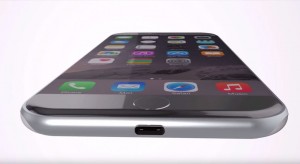 iPhone 7 it will be thinner than iPhone 6S thanks to the company TSMC, the Taiwanese having prepared a new production process for the chip of the future terminal, following this would allow the Apple company to substantially reduce the thickness of its terminals.
iPhone 7 it will be thinner than iPhone 6S thanks to the company TSMC, the Taiwanese having prepared a new production process for the chip of the future terminal, following this would allow the Apple company to substantially reduce the thickness of its terminals.
More precisely, we are talking about a technology called InFO announced by TSMC during the past year, the Taiwanese intending to use it for the manufacture of the future A10 chip during the next year, the final result being a much thinner component than the A9 chip.
InFO technology has been perfected since 2014 and until now, the thickness of the A10 chip can be up to 0.2mm smaller than that of the current A9 chip, this difference can also be found in the total thickness of the terminal iPhone 7, if Apple does not implement new thicker components.
The reason TSMC didn't convince Apple that Info technology the merit used in the A9 chip is related to the inability to produce enough chips with this manufacturing process to cover market demand, but in 2016 things would be different.
TSMC is on track to bring Integrated Fan-Out (InFO) technology to mass production. Its first major customer will be Apple, which will use InFO for iPhone 7 next year. Compared with the Flip Chip-PoP (Package-on-Package, or simply FC-POP) technology currently employed, InFO removes the substrate from the package and hence can reduce the thickness of mobile SoC from 1mm to 0.8mm or lower. The shorter distance between logic die and printed circuit board also enables faster thermal dissipation, higher maximum allowable power consumption and possibly 20% better performance.
Once every two years, the Apple company reduces the thickness of the case of its iPhone terminals, and if in the case of the iPhone 6S we talked about an increase in the thickness of the case by 0.2mm due to the implementation of the Taptic Engine for 3D Touch, in 2016 the thickness could fall below that of the iPhone 6.
The basis of this change will not only be the use of InFO technology for the production of the A10 chip of the iPhone 7, because it is likely that Apple will also use Samsung for the production of the new chips, and the Koreans probably do not have this technology implemented in the factories.
















